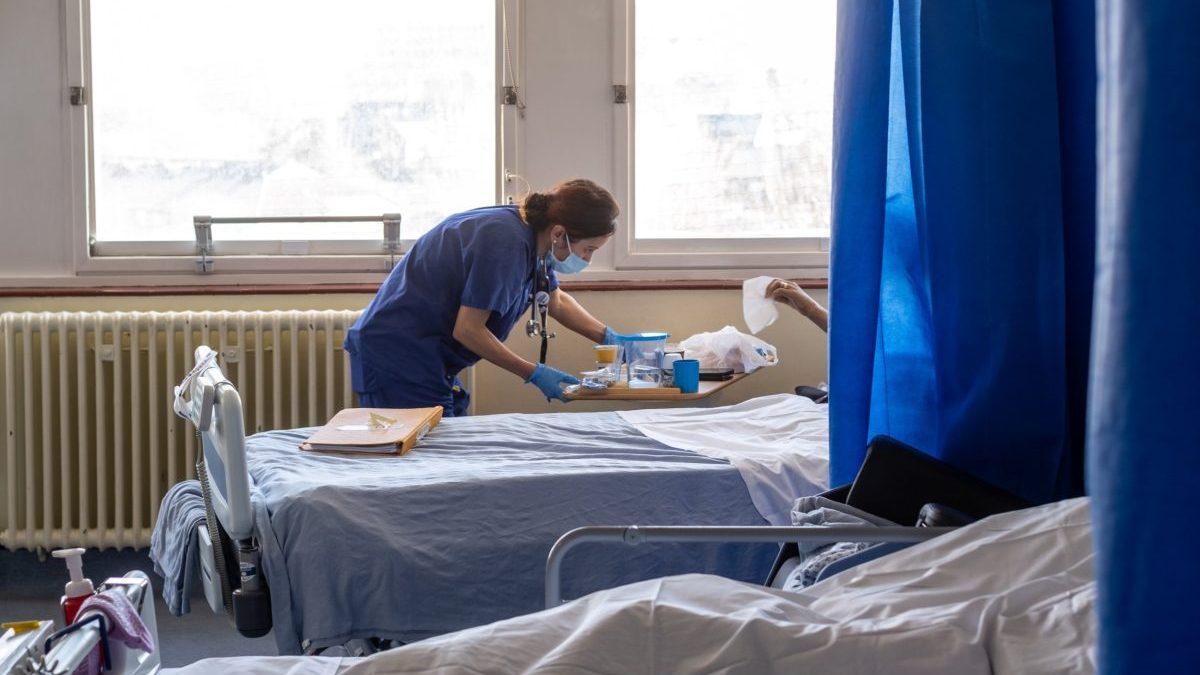Experts say that confusing processes and guidance are partly behind the reason for so many staff missing out
NHS staff who worked extra shifts during the Covid pandemic are among those set to miss out on more than £8,000 of compensation each due to paperwork issues.
A compensation scheme was set up for the 2019/20 tax year to shield NHS staff from pension tax charges caused by breaching their annual allowance – a limit on the amount that can be saved into a pension tax-free.
This annual allowance tapers down for high-earning individuals, and the Conservative Government agreed to raise the salary threshold at which this taper starts from April 2020.
In 2019, in order to stop senior staff from working fewer hours, the NHS introduced the compensation scheme to ensure those who exceeded their annual allowance were not left out of pocket in the period before the rules were changed.
But figures show that nearly 4,000 staff members – most of whom are GPs and hospital doctors – have only partly completed the necessary paperwork to claim the money back, meaning they are set to miss out.
The scheme was set up before the Covid pandemic, but ended up covering the start of the first UK lockdown, meaning those who took on extra shifts as NHS demand rose could be among those impacted.
Experts have said that confusing processes and guidance are partly behind the reason for so many staff missing out.
The 2019/20 Pensions Annual Allowance Charge Compensation Scheme (PAACCS) was launched to stop those in the NHS from being hit with in some cases, tax charges of up to £13,500 for earning £1 of extra income, but those who wanted to use the scheme had to apply via a two-step process.
A freedom of information request to the NHS Business Services Authority (NHSBSA) by NHS pension firm Medifintech – part of wealth managers Quilter – reveals that 3,888 NHS members have completed the first, but not the second.
Collectively, they will miss out on at least £31m of compensation, at an average loss of £8,064.62.
Even more could be missing out, as the figures only cover those who filled in part of the paperwork.
The deadline for applications was initially 2022, but has been extended for some NHS staff that have been impacted by the so-called ‘McCloud remedy’, a change to public sector pensions designed to address age discrimination.
But Quilter says the guidance on the NHS England website is not clear enough and has not been updated to include the information on the McCloud remedy.
Graham Crossley, NHS pension specialist at Quilter, said: “Thousands of NHS professionals, including frontline doctors, GPs, and nurses, took on extra work despite the tax risks – trusting they would be protected from financial penalties.
“Instead, they are being denied relief due to bureaucratic red tape, leaving them with avoidable tax bills in a period of unprecedented healthcare strain.
“This is a clear case of a policy with good intentions but flawed execution. Hardworking NHS staff deserve a pension system that supports them, not one that penalises them due to administrative failure.
“It is up to the Government and NHS England to now act and repair the damage in order to prevent future failings. We want to see both the deadline for PAACCS abolished and allow members to retrospectively claim for compensation at the time of retirement, giving a significant cohort the outcome they deserve.”
An NHSBSA spokesperson said: “Not all members who have made a 2019/20 Scheme Pays application will be eligible for the PAACCS. Information about PAACCS, including eligibility, is available on the NHS England website.
“We’re working with NHS England to update information so that members affected by the Public Service Pensions Remedy (McCloud) understand whether they’re eligible for PAACCS and how to apply.
“Updates will be made to both the NHS England website and the NHSBSA website and we’ll update employers so they can support their NHS Pension Scheme members with applications for PAACCS.”
Why staff are missing out
Those applying for tax compensation have to complete a dual process.
They had to register for something known as a Scheme Pays election and a separate PAACCS application.
The Quilter FOI covers those who completed a Scheme Pays application but then did not complete the PAACCS application.
Quilter has suggested that NHS Pensions should automatically check tax details with members at retirement, in cases where there is a 2019/20 Scheme Pays application and no corresponding PAACCS application.
